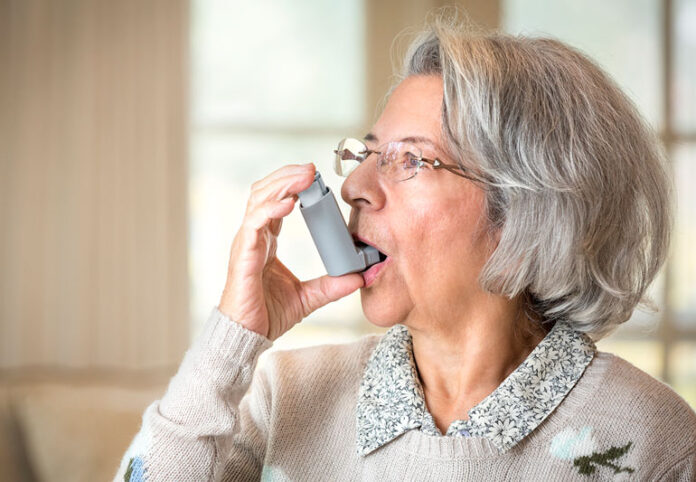Around six million people aged 65 and over in England, particularly those with lung conditions, are at increased risk of breathing difficulties and having asthma attacks or COPD flare-ups due to living in heavily polluted areas, according to new figures revealed today by the UK’s leading respiratory charities.
In a new report, The invisible threat: how we can protect people from air pollution and create a fairer, healthier society, Asthma UK and the British Lung Foundation have revealed that 59% of older people are living in areas where fine particulate matter (PM2.5), the most worrying type of pollution that can penetrate deep into the lungs, is above the levels recommended by the World Health Organization (WHO). 2
Worryingly, older people are being exposed to high levels of air pollution in places where they should feel safe, including:
- Over a quarter of care homes in England (26%) 3
- Nearly 3,000 medical centres in England (37% of all GPs and 29% of hospitals) 4
While there are no safe levels of the toxic pollutant PM2.5, the WHO recommends that concentrations should not exceed 10 μg/m3. The current legal limit for PM2.5 in the UK is 20 μg/m3, twice the limit recommended by international health experts.
Air pollution is dangerous for everyone but for the most vulnerable people in society, including older people who are more likely to suffer from lung disease or have weakened lungs from ageing, spikes in air pollution levels can put them at risk of breathing difficulties and having asthma attacks or COPD flare-ups.
Exposure to air pollution increases the chance of a person dying early, developing lung cancer and cardiovascular disease. Emerging research has even shown links with air pollution and cognitive decline, including dementia.5
The research, which used PM2.5 data collected in 2019, shockingly revealed that in 36 local authorities every care home is located in areas with levels of pollution over what the WHO recommended guidelines, including in Epping Forrest, Luton, Thurrock, Reading, Slough, Spelthorne, Broxbourne, Dartford and Watford.
In total there are 4,382 care homes, that provide critical care and support to older people, located in highly polluted areas across England.
There are pollution black spots across the country affecting 98% of care homes in London, 97% in Epsom and Ewell, 95% in Oxford, 83% in Sandwell, 76% in Northampton, 63.5% in Swindon, 47% in Coventry, 40% in City of Bristol, 37% in Birmingham, 36% in Leicester, 33% in South Gloucestershire and 15% in Liverpool.
Asthma UK and the British Lung Foundation are urging the government to produce a national health protection plan for England overseen by a newly created air quality minister to safeguard those most at-risk from the effects of toxic air. This plan should include training for health professionals and an alert system that tells the general public when air pollution is going to be high, which directly informs care homes and medical centres so that those most at risk can protect themselves from harm.
The charities are also calling for the government to set out stronger clean air laws that set out targets in line with WHO guidelines and commitments to meet these by 2030 at the latest.
Asthma UK and the British Lung Foundation, who have nurses that provide life-saving health advice for people with lung-conditions, have also launched an online map where people can see how many care homes, medical centres and schools are located in highly polluted areas where they live.
Sarah Woolnough, Chief Executive of Asthma UK and the British Lung Foundation, said:
“It is unacceptable that millions of over-65s, who are more likely to suffer from lung disease, are being exposed to toxic levels of air pollution in places where they are supposed to feel safe.
“As we get older, we rely more on health and social care services but we can’t move all the care homes, hospitals and GP surgeries to areas with better air quality. The government must produce a national health protection plan to safeguard people from the invisible threat of air pollution and set out stronger air quality laws in line with WHO guidelines.
“Our parents and grandparents have sacrificed so much during the Covid-19 crisis, they surely deserve to have clean air to breathe.”







